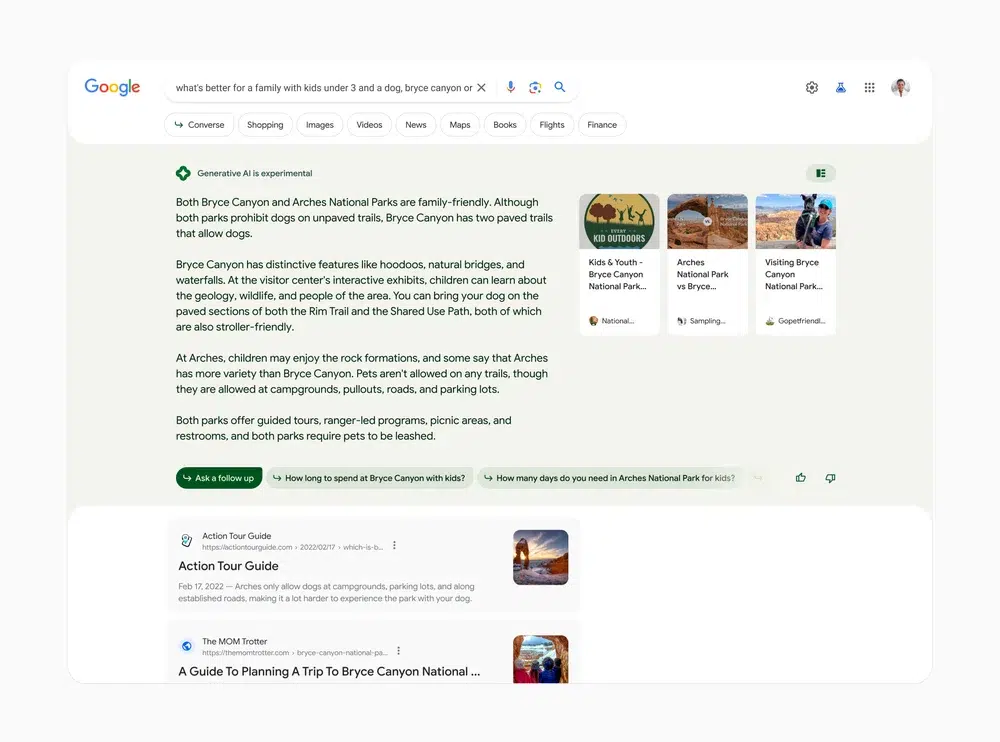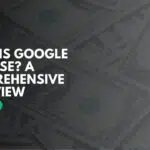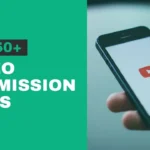Welcome to the ultimate guide for mastering 15 Advanced marketing SEO secrets and concepts! In this comprehensive resource, we will dive deep into the world of search engine optimization and reveal a treasure trove of powerful techniques to elevate your marketing strategies.
Whether you’re a seasoned marketer looking to fine-tune your SEO prowess or a budding entrepreneur seeking to boost your online presence, this guide has something for everyone. We’ve carefully curated 15 insider secrets that are sure to transform your approach to digital marketing.
Throughout this journey, we’ll demystify complex concepts, provide step-by-step instructions, and share real-world examples to ensure that you not only understand these Advanced SEO techniques but can also implement them with ease.
Prepare to unlock the secrets that successful marketers use to gain a competitive edge and drive organic traffic to their websites.
Let’s embark on this enlightening expedition together as we unravel the mysteries behind mastering 15 advanced marketing SEO secrets and concepts. Are you ready to take your marketing game to the next level?
Let’s get started!
1. The Most Important Skill for a Tech SEO: Prioritization and Focus
The most crucial skill for a tech SEO specialist is the ability to prioritize tasks effectively and know what to focus on.
Tech SEO is all about enhancing a site’s performance, not striving for perfection. There are various factors influencing a site’s performance, but not all of them carry equal weight.
A skilled tech SEO will know how to identify the most critical factors and concentrate efforts on them while disregarding less significant aspects beyond their control.
Key factors to focus on include:
- Site Speed: Optimize for fast-loading pages to ensure a better user experience and higher search engine rankings.
- Mobile-Friendliness: With more users accessing websites via mobile devices, ensuring your site is mobile-friendly is essential for SEO success.
- Security: Prioritize a secure website to protect user data and boost credibility.
- Structured Data: Implement structured data to help search engines better understand your site and improve search result rankings.
- Internal Links: Optimize internal linking to assist search engines in understanding your site’s structure and content relationships.
- Off-Page SEO: While some factors are beyond our control, it’s important to monitor and adjust off-page SEO elements such as backlinks.
Remember, the specific priorities may vary depending on your site and objectives.
2. Understanding Traffic Changes and SEO Performance
It is common for traffic to fluctuate and can be caused by a variety of factors, such as search engine algorithm updates, website popularity, and competition in the niche. To accurately evaluate SEO performance, it is essential to analyze the pages and keywords that drive traffic to your site.
If you observe a decrease in traffic from specific pages or keywords, investigate the reasons behind it. It could be due to irrelevance or changing competitiveness. Once identified, take appropriate actions, such as optimizing pages or updating content, to regain lost traffic.
To ensure effective SEO performance analysis:
- Track Pages and Keywords: Monitor which pages and keywords are driving traffic to your website.
- Identify Declines: Identify pages or keywords experiencing traffic declines.
- Analyze Causes: Determine why the traffic declined (e.g., keyword competitiveness or relevance).
- Take Action: Improve SEO for declining pages or keywords to attract more traffic.
3. SEO as a Sunk Cost and Focus on KPIs
SEO investments are considered sunk costs since once you’ve spent the money, you cannot recover it.
Thus, evaluating SEO performance based on ROI (Return on Investment) alone is not appropriate. Instead, focus on KPIs (Key Performance Indicators) to assess your SEO campaign’s progress.
KPIs relevant to SEO can include:
- Website Traffic: Measure the number of visitors to your website.
- Organic Search Rankings: Monitor your site’s rankings for specific keywords in organic search results.
- Leads Generated: Track the number of leads or inquiries generated through SEO efforts.
- Sales: Measure the revenue generated directly from SEO-driven sales.
By concentrating on KPIs, you can gain insights into your SEO campaign’s effectiveness and make informed decisions about its budget and strategy.
4. Digital PR and Link Building for SEO
Digital PR is a powerful strategy for building quality links and improving search engine rankings. Mentioning your business in relevant publications can lead to increased brand visibility, more website traffic, and improved search engine ranking.

While do-follow links (passing PageRank) are more valuable, no-follow links can also contribute positively to SEO and website authority.
To leverage digital PR effectively:
- Build High-Quality Links: Focus on obtaining links from reputable and relevant websites.
- Avoid Spammy Tactics: Refrain from linkspam or black hat SEO practices that can lead to penalties from search engines.
- Prioritize Brand Mentions: Aim for media mentions that showcase and advertise your brand effectively.
By following these practices, you can build a strong link profile and enhance your website’s search engine ranking.
5. Excellent Brand Marketing as the Best SEO Technique
Brand marketing plays a crucial role in SEO. A strong brand leads to increased brand awareness, higher website traffic, improved customer loyalty, and reduced marketing costs.
To strengthen your brand marketing efforts:
- Focus on Brand Awareness: Invest in activities that enhance your brand’s visibility.
- Deliver Quality Products or Services: Providing excellent products/services leads to positive word-of-mouth and brand reputation.
- Maintain Brand Consistency: Use consistent branding elements across all marketing channels.
- Utilize Social Media: Leverage social media platforms to engage with your audience and promote your brand.
A well-established brand will naturally attract more searches and improve SEO performance.
6. The Role of Publicity and Advertising in SEO
Publicity and advertising are essential for SEO. These tools raise brand awareness, stimulate brand searches, and can drive traffic to your website. By investing in PR and advertising, businesses can increase their relevant search traffic and capture that traffic through effective SEO strategies.
To leverage publicity and advertising for SEO:
- Create Brand Awareness: Use PR to gain media coverage and increase brand visibility.
- Invest in Advertising: Paid advertising can drive targeted traffic to your website.
- Optimize Your Website: Ensure your website is SEO-friendly to capture incoming traffic effectively.
By combining PR, advertising, and SEO, businesses can boost their online presence and attract more potential customers.
7. Understanding and Avoiding Linkspam in SEO
Linkspam is the act of creating low-quality or irrelevant links to a website in order to artificially boost its search engine rankings. Google actively penalizes sites that engage in linkspam, which can result in significant traffic losses.
To avoid linkspam:
- Focus on Quality Links: Prioritize building high-quality links from relevant and reputable sources.
- Avoid Link Buying and Selling: Steer clear of practices that involve buying or selling links.
- Natural Link Building: Concentrate on natural link-building methods, such as creating valuable content that attracts organic backlinks.
By following the best practices of link building, businesses can safeguard their website’s reputation and maintain high search engine rankings.
8. Product-Led SEO: Prioritizing User Experience
Product-led SEO is a modern approach to search engine optimization that focuses on providing a great user experience. It involves creating a website that is easy to use, informative, and engaging, and that meets the needs of users.
To implement product-led SEO effectively:
- Focus on User Experience: Prioritize user-friendly website design and intuitive navigation.
- Provide Valuable Information: Offer high-quality, relevant content that answers user queries.
- Analyze User Behavior: Use data to track user behavior and optimize the website accordingly.
Product-led SEO will be the future of SEO as search engines evolve to understand and prioritize user intent.
9. Content and User Experience: The Key to SEO Success
While high-quality content is essential for SEO, the user experience is equally important. Great content should provide valuable answers to users’ questions and be presented in an engaging format.
For SEO success:
- Relevance: Ensure your content aligns with user search intent and target keywords.
- Clarity: Use clear and concise language to communicate your message effectively.
- Visual Appeal: Incorporate images and videos to enhance content presentation.
- Promotion and Branding: Leverage content to showcase your brand effectively.
A positive user experience coupled with valuable content will improve SEO and increase brand awareness.
10. SEO and the Evolution of Search Engines
SEO is a constantly changing process. As search engines become more advanced, the focus shifts to understanding user intent and providing the best possible user experience. Businesses must adjust their SEO strategies to keep up with these developments.
To stay ahead:
- Search Intelligence: Understand and analyze user search intent to provide relevant content.
- Marketing Effectiveness: Utilize effective marketing strategies to enhance brand visibility.
- Analyze Search Performance: Regularly track and analyze SEO performance to identify areas for improvement.
By staying informed and adaptable, brands can navigate the changing landscape of SEO and maintain a competitive edge.
11. Search Generative Experience (SGE) and its Impact on SEO

SGE is a technique used by search engines to improve search results by adding information from various sources. Although it can have an impact on top-of-the-funnel searches, it is primarily a concern for publishers.
To mitigate the effects of SGE:
- Invest in Advertising and PR: Advertising and PR efforts can drive targeted traffic and bypass SGE.
- Focus on Niche Searches: Concentrate on specific niche searches where SGE may have less influence.
Brands can reduce the impact of SGE on their SEO performance by diversifying their marketing efforts and targeting niche searches.
12. SEO Content Strategy: Prioritize Quality and User Experience
SEO content plays a critical role in improving website rankings. However, brands must prioritize content quality and user experience to stand out from competitors.
To create effective SEO content:
- Relevance and Keywords: Ensure your content is relevant to your target audience and incorporates strategic keywords.
- Clear Communication: Write in a concise and clear style to engage users effectively.
- Visual Appeal: Use multimedia elements to enhance the content presentation.
- Promotion and Branding: Utilize content to showcase your brand effectively.
By delivering valuable content in a user-friendly format, brands can improve their SEO and attract and retain customers.
13. The Future of SEO: Understanding Search Engine Advancements
SEO continues to evolve as search engines become more intelligent. The future of SEO will focus on providing search intelligence, which means understanding and fulfilling users’ search needs effectively.
To stay ahead in SEO:
- Marketing Effectiveness: Understand marketing strategies that resonate with your target audience.
- Analyze Search Behavior: Use data to track user search behavior and adapt your SEO strategies accordingly.
By aligning SEO efforts with search intelligence, brands can create a website that effectively meets users’ needs and improves search engine rankings.
14. Leveraging Google Search Console for SEO Performance
Google Search Console is a valuable tool for tracking and improving website performance in Google search results. Monitoring keyword performance, impressions, and clicks can provide insights into your SEO effectiveness.
To optimize SEO performance:
- Track Performance: Use Google Search Console to monitor keyword rankings, impressions, and clicks.
- Analyse Keyword Trends: Identity trends in search behaviour to tailor your content accordingly.
- Address Traffic Declines: Investigate the reasons behind traffic declines and take corrective actions.
Businesses can enhance their SEO strategy and draw in more relevant traffic by effectively utilizing Google Search Console.
15. The Best Web Experience: An SEO Priority
Aiming to provide the best web experience in your sector should be the primary goal of SEO. This means focusing on high-quality, relevant content and creating an easy-to-use and engaging website.
To achieve the best web experience:
- Content Relevance: Ensure your content addresses user needs and aligns with search intent.
- User-Friendly Website: Create a website with intuitive navigation and a pleasing design.
- Link Building: Focus on building quality backlinks from reputable sources.
- Regular Updates: Keep your website content fresh and up-to-date.
By delivering the best web experience, you can improve your website’s search engine ranking and attract more traffic.
Final thoughts On Advanced Marketing SEO Secrets
Congratulations on completing this journey into mastering 15 Best Advanced Marketing SEO Secrets And Concepts. You now have a wealth of invaluable knowledge that can significantly impact your digital marketing endeavours.
Remember that SEO is an ever-changing landscape, so it is essential to stay up-to-date with industry trends and search engine algorithms.
Continuously refine your strategies and experiment with new techniques to stay ahead of the competition in the digital realm.
As you implement these Advanced SEO secrets And Tips , do not forget the fundamental principle of creating valuable and engaging content for your audience. Strive to build lasting connections and relationships with your visitors, as they are the heart of your online success.
Armed with the insights gained from this guide, you are now well-prepared to make informed decisions, adapt to changes, and achieve remarkable results in your marketing campaigns. Embrace the journey of constant improvement, and success will surely follow.
Thank you for joining us on this enlightening adventure. We wish you the best of luck as you take your marketing efforts to greater heights. May your online presence thrive, and your business flourish in this ever-expanding digital landscape.
Happy Blogging!












1 thought on “15 Proven New SEO Tips for Advanced Marketing Campaigns 2023”